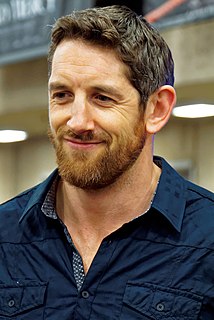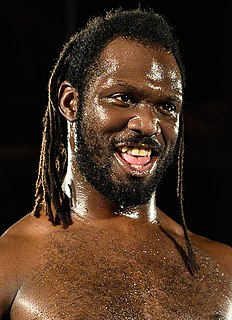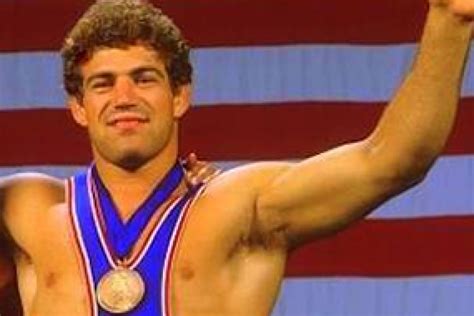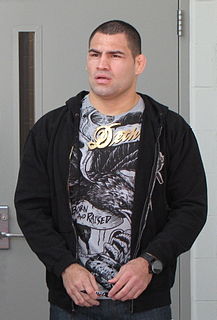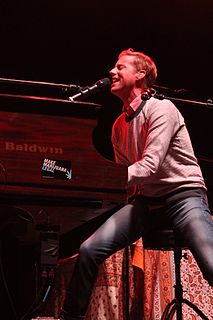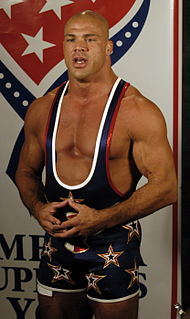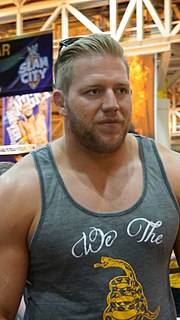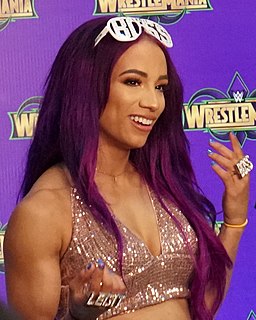A Quote by Wade Barrett
When I was coming through as a professional wrestler, as a young man in 2003 and 2004, there really wasn't much of a wrestling scene in the U.K. to take advantage of or make a living in, so I was forced to have to go to the U.S. and kinda make a living from it out there.
Related Quotes
One of the things about me is that I actually had marginally middle-class living from writing. For years and years, I actually wrote so much through the '70s and '80s that I made a living. And very rarely have I had to take another job. And now it's impossible for anybody coming up to make such a living. They've pissed in the temple, you know?
Not being active, your name doesn't go out there as much, and you lose the popularity thing. Also, you're not able to make a living. This is what we do to make a living: we go out there and fight. Not being able to fight for a year and a half and not able to bring in money, it definitely sets you back.
It was very easy to kind of, kinda shut off and just, just kinda go crazy and just kinda dive into this or that. You never really take a minute to look around, you know take stock and see where you're at and make sure you're doing things for the right reasons and make sure that you remember to call that person who's really important to you and you know, tell them what's on your mind, and be honest with yourself.
It wasn't until after I received my education that I seriously looked at sports entertainment as a way to make a career for myself. And they've got to take it in stride. It's very much like acting or playing professional sports: One percent of one percent of the people who try out for it can actually say they make their living off of doing it.
I did freelance cartooning off and on from college graduation in 1991 through ABC News hiring me in 2003. I did a weekly comic strip for 'Roll Call' for about nine years. I sold cartoons and caricatures to 'The Los Angeles Times' and 'The Washington Post.' I drew as much as I could. It's really tough to make a living doing it.
My mom was like, 'What did I do as a mom for you to want to become a wrestler?' They just didn't understand, and it's really hard to explain what made me love wrestling so much. There's something about it that made me fall in love, and ever since I laid my eyes on it, I knew I wanted to be a professional wrestler in the WWE.
